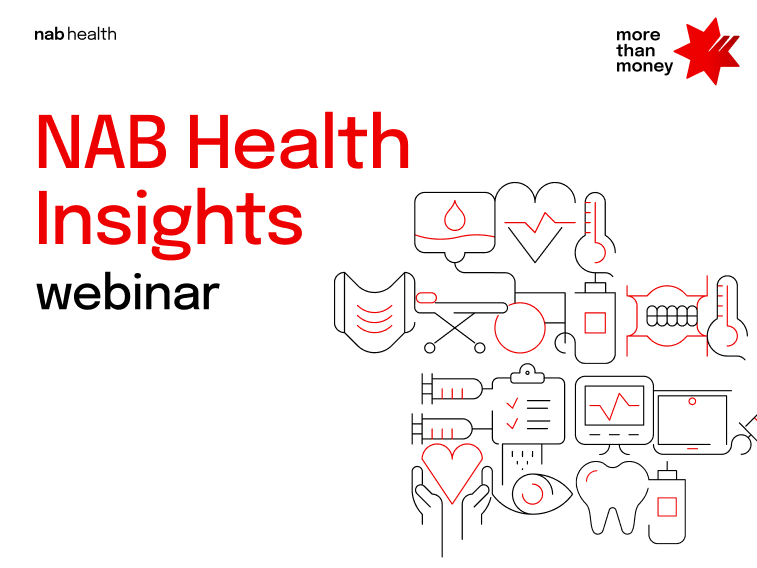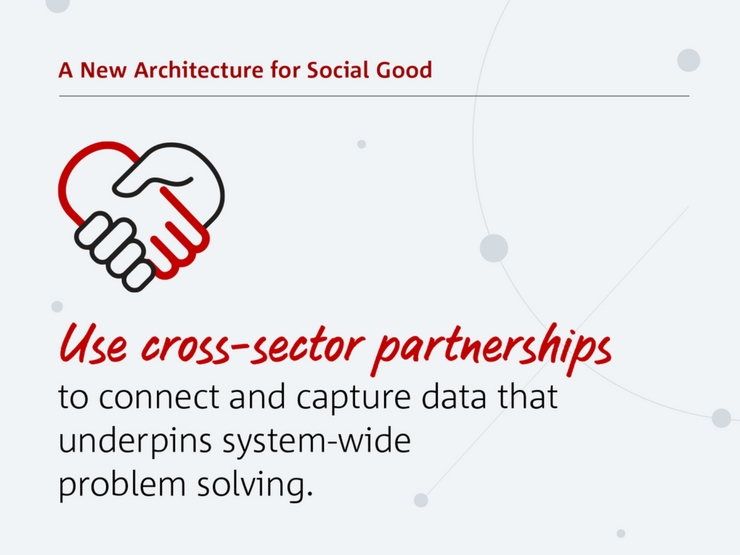You’re invited to our latest NAB Health Insights Webinar on Thursday 16th October 2025.


Webinar
Using cross-sector partnerships to connect and capture data that underpins system-wide problem solving can create better societal outcomes.

Countries around the world are dealing with unprecedented challenges, including large scale demographic shifts, the provision of affordable high quality healthcare, education and housing, non-traditional threats to national security, climate change, and energy security.
Against this backdrop, there’s the opportunity to unlock considerable value in the combined expertise of government, business, academia and not-for-profit sectors to create strong social, environmental and economic outcomes – now and into the future.
Working together, these sectors have the scale, influence, acumen and access to capital to achieve real and lasting benefit.
A picture of where expertise lies is the starting point from which sustainable solutions to the nation’s most serious long-term issues can be built.
What can each sector bring to the table?
Private sector – Business has the means to unlock capital and bring sector-specific expertise to help assess and develop solutions to solve a broad range of problems. The challenge is to ensure this capital and expertise is used to benefit society and, at the same time, deliver attractive returns on investment.
Public sector – Governments have the social licence to solve Australia’s biggest challenges and the ability to marshal the expertise needed to quantify and articulate the long-term impact of those challenges. Although constrained by fiscal challenges and political cycles, the public sector also has the capacity to convene and facilitate collaborative discussions with many stakeholders.
Not-for-profits and academia – Backed by extensive research, community service expertise and a trusted position in society, these sectors provide a rich understanding of the issues facing Australia and a forum to incubate game changing ideas. The challenge is to give these ideas a national voice, assemble the key stakeholders and connect with required capital.
Capturing system-wide data through cross-sector partnerships
Big data and new technologies improve the potential to capture real-time information and in turn demonstrate the true value of collaboration and ‘for profit, for purpose’ approaches to business.
Big data unlocks the ability to better understand complex problems and then design models that can tackle problems in a more purposeful and efficient way.
In addition, there’s the opportunity to join the dots of rich data sets, such as medical records, agribusiness performance and social service usage rates.
To leverage these opportunities, business, government, academia and not-for-profits need to collaborate. That requires working together to design models, frameworks and solutions through co-creation, systems thinking and innovative problem solving.
We need to build partnerships where co-operation creates innovation and forward thinking.
This article is adapted from A new architecture for social good – the second report in the Catalyst Insights Series, which was developed following a roundtable focused on enabling the public and the private sector to work together to create better societal outcomes.
© National Australia Bank Limited. ABN 12 004 044 937 AFSL and Australian Credit Licence 230686.